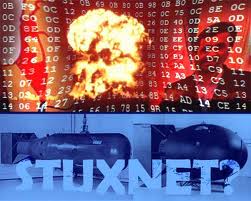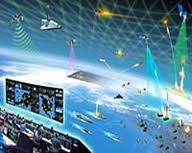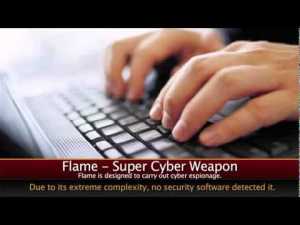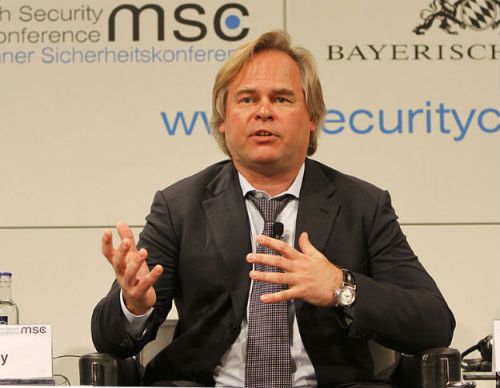During a debate at the DLD 2013 conference last week, the two internet gurus, Eugene Kaspersky (Kaspersky Labs) and Mikko Hypponen (F-Secure) made some rather disturbing comments on the development of cyber weapons. Kaspersky has said that the new cyber weapons may be “cleaner” than traditional weapons but they are “much worse”. Hypponen added that what set cyber-weapons apart from traditional weapons was the fact that anyone could get their hands on one of these weapons, unlike a nuclear bomb, missiles or tanks which only armies would have access to. Both experts believe the situation is critical.
“We are not ready to limit their functionality, we cannot consume less IT, like oxygen or water.”
Eugene Kaspersky
YNNK3NH8NCDS
At the DLD 2013 conference, Kaspersky warned that humanity is not ready to deal with the dangers of cyber weapons and is still very vulnerable. He believes that it’s just a matter of time before a serious incident happens. And, what may be even worse, anyone can get their hands on them. Kaspersky also put forward the idea limited access to certain technologies, because we simply cannot control them, He and the situation to the tragic stories of the Zeppelin and the Concorde, two technologies which were discontinued because of inherent dangers in their original constructions.
 According to Mikko Hypponen are we at the moment in the “first stages of a cyber-arms race,” and we are beginning to see many other countries trying to “jump on the same bandwagon” as the US and Israel, who were behind the original cyber-weapon – Stuxnet. Adding that like the nuclear scientists in a similar way lost their innocence in 1945 with the bombing of Hiroshima and Nagasaki, computer scientists lost their innocence in 2009 when Stuxnet infected a Siemens PLC device in the Natanz nuclear enrichment facility in Iran.
According to Mikko Hypponen are we at the moment in the “first stages of a cyber-arms race,” and we are beginning to see many other countries trying to “jump on the same bandwagon” as the US and Israel, who were behind the original cyber-weapon – Stuxnet. Adding that like the nuclear scientists in a similar way lost their innocence in 1945 with the bombing of Hiroshima and Nagasaki, computer scientists lost their innocence in 2009 when Stuxnet infected a Siemens PLC device in the Natanz nuclear enrichment facility in Iran.
Both Kaspersky and Hypponen agree that the next major military engagement will involve a major cyber element, and while the battle won’t be completely online, it will be a major aspect of the war.
“I think we’ve only seen the very beginning of these problems,” Hypponen says.
Weapons of Mass Destruction – Download here!
“Attribution is one of the biggest challenges in this area – and one of the strengths for governments as they can launch a cyber-weapon]and then deny it. The difficultly of attribution is that it is very easy to leave false flags, or false leads,” according to the head of F-Secure, Mikko Hypponen. Adding that what set cyber-weapons apart from traditional weapons was the fact that anyone could get their hands on one of these weapons, unlike a nuclear bomb, missiles or tanks which only armies would have access to.
The conference in Munich took place just one week after the Kaspersky Labs announced the discovery of Red October, a highly complex piece of malware which was used by the owners to spy on embassies, diplomats, scientific organisations and other government organisations for five years without being detected.
It is unclear who is behind this attack.
Kaspersky says that in his opinion there are three possible creators of the Red October software:
Spying Is Not War!
 The first possibility is a nation-state, though the fact the malware was written in Russian didn’t automatically mean Russia was behind the attack, Kaspersky underlined.
The first possibility is a nation-state, though the fact the malware was written in Russian didn’t automatically mean Russia was behind the attack, Kaspersky underlined.
The second possibility would be a hacktivist group like Anonymous, who could use the sensitive data stolen to advance their operations around the globe.
Finally, Kaspersky pointed to the most scary alternative – that criminals could be behind the attack, selling the classified data to anyone from fellow criminals to governments looking for information on a neighbouring state.
Hypponen, however, do not consider this to be an act of cyber-warfare.
“Spying is not war, espionage is not warfare. The fact we have a lot of online espionage – such as Red October – is not warfare, it’s spying. Cyber]warfare is targeting critical infrastructure, because our infrastructure is run by computers,” he says.
Tech to Hack!
 Leon Panetta, the US defence secretary said back in October that the US faced the threat of a “cyber Pearl Harbour” and was increasingly vulnerable to foreign computer hackers who could attack the nation’s power grid, transportation system, and government.
Leon Panetta, the US defence secretary said back in October that the US faced the threat of a “cyber Pearl Harbour” and was increasingly vulnerable to foreign computer hackers who could attack the nation’s power grid, transportation system, and government.
And Kaspersky believes that we are nowhere near ready to deal with the dangers that are out there. “We are very, very vulnerable. I agree with Leon Panetta, it is just a matter of time when we have the next very serious incident.”
The Russian internet pioneer, who also have proposed digital passports for entering the web, now talks about limiting access to certain technologies. At the moment, there are a number of certain digital technologies that should be walked away from due to their danger, he says.
The idea was rejected by the majority of the security expert at te conference, including Kaspersky himself, arguing that it would be difficult to do so, or to limit the function of certain digital technology.
“Are we ready for that? Can we survive without new digital technologies? I recognise the situation as critical. We are not ready to limit their functionality, we cannot consume less IT, like oxygen or water.”
A Stage of War Is Set!
 Hypponen says that we now are in the “first stages of a cyber-arms race” and we are beginning to see many other countries trying to “jump on the same bandwagon” as the US and Israel, who were behind the original cyber-weapon – Stuxnet.
Hypponen says that we now are in the “first stages of a cyber-arms race” and we are beginning to see many other countries trying to “jump on the same bandwagon” as the US and Israel, who were behind the original cyber-weapon – Stuxnet.
Hypponen told the audience in Munich that in a similar way to nuclear scientists losing their innocence in 1945 with the bombing of Hiroshima and Nagasaki, computer scientists lost their innocence in 2009 when Stuxnet infected a Siemens PLC device in the Natanz nuclear enrichment facility in Iran.
Both Kaspersky and Hypponen agree that the next major military engagement will involve a major cyber element, and while the battle won’t be completely online, it will be a major aspect of the war.
(Source: International Business Times)
Related by the econoTwist’s:
- The Cyber War: Complete Coverage
- The Cyber War (Complete Coverage) Part 2: A New Battlefield
- The Cyber War (III): Complete Chaos
- Cyber Criminals Attack Critical Water, Oil and Gas Systems
- The Stuxnet – Visualized
- Stuxnet Mutants All Over The Web
- Hackers Release Cloned Stuxnet Worm Online
- Kaspersky: Military-Run Cyber Attacks Real Future Threat
- The REAL Weapon of Mass Destruction
Other related articles:
- Red October Could Be the Work of Sophisticated Hackers Catering to Secret Services (news.softpedia.com)
- Future cyber attacks could prove catastrophic, say online security experts (guardian.co.uk)
- Wired’s Most Dangerous: Russia’s cyber-security mogul behind Flame virus downfall hits top 15 (rt.com)
- Cyber Warfare (drakeequation.wordpress.com)
- Kaspersky Lab reveals international cyberspies (rbth.ru)
.
All Human Rights Reserved (h) 2013






























I have to show my affection for your kindness giving support to folks who should have help on in this study. Your special dedication to getting the solution all through was extraordinarily beneficial and have usually allowed employees like me to attain their aims. Your amazing interesting guidelines denotes a whole lot a person like me and additionally to my fellow workers. Regards; from each one of us.
nice post
Simply wish to say your article is as surprising. The clarity to your post is just nice and i could assume you are knowledgeable on this subject. Fine along with your permission allow me to snatch your RSS feed to keep updated with drawing close post. Thanks one million and please continue the enjoyable work.
Pingback: Rational Arrogance